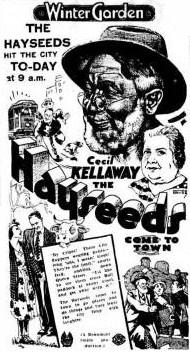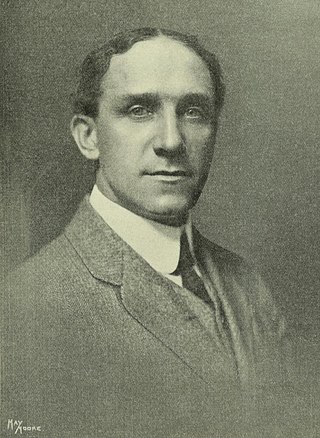Related Research Articles

John Hadley Thompson, AM is an Australian actor and a major figure of Australian cinema, particularly Australian New Wave. He is best known for his role as a lead actor in several acclaimed Australian films, including such classics as The Club (1980), Sunday Too Far Away (1975), The Man from Snowy River (1982) and Petersen (1974). He won Cannes and AFI acting awards for the latter film.

David Keith Williamson is an Australian playwright, who has also written screenplays and teleplays. He became known in the early 1970s with his political comic drama Don's Party, and other well-known plays include The Club, Travelling North, and Emerald City.

George Musgrove was an English-born Australian theatre producer.

The English, Scottish & Australian Bank Limited was an Australian bank founded in 1852 by royal charter in London and named English, Scottish and Australian Chartered Bank. Following a financial reconstruction in 1893 its business was renamed English, Scottish and Australian Bank Limited.
Frank Beaumont "Beau" Smith, was an Australian film director, producer and exhibitor, best known for making low-budget comedies.

The Hayseeds is a 1933 Australian musical comedy from Beaumont Smith. It centres on the rural family, the Hayseeds, about whom Smith had previously made six silent films, starting with Our Friends, the Hayseeds (1917). He retired from directing in 1925 but decided to revive the series in the wake of the box office success of On Our Selection (1932). It was the first starring role in a movie for stage actor Cecil Kellaway.
The Eleventh Hour is a 1912 Australian silent film. It is considered a lost film.
Struck Oil is an 1874 play set during the American Civil War and a 1919 Australian silent film, now considered lost. The play, which introduced Maggie Moore to Australian theatre-goers, was popular with the Australian public and the basis of J. C. Williamson's success as a theatre entrepreneur. A film based on the play and directed by Franklyn Barrett was produced in 1919.
The Department is a 1974 play by David Williamson about political intrigue at a university department. It was based on Williamson's time as a lecturer at Swinburne Tech.
Top Silk is a play by David Williamson concerning two lawyers. It is not regarded as one of his strongest plays but was very successful commercially.

Lady in Danger was a play by Australian writer Max Afford. It was one of the few Australian plays to be produced on Broadway. It was also adapted for radio and television.

Hugh Joseph Ward was an American-born stage actor who had a substantial career in Australia as comic actor, dancer, manager and theatrical impresario.
James Allison was a theatre manager in Sydney, Adelaide and Melbourne. He engaged and managed local and overseas opera, drama, circus, minstrel and variety companies throughout the Australasian colonies.
The Highwayman is an Australian musical comedy with book, music and lyrics by Edmond Samuels. Set in Bendigo during the Gold Rush in the 1860s, the story concerns the love of an innkeeper's daughter for a highwayman.

May Hollinworth was an Australian theatre producer and director, former radio actress, and founder of the Metropolitan Theatre in Sydney. The daughter of a theatrical producer, she was introduced to the theatre at a young age. She graduated with a science degree, and worked in the chemistry department of the University of Sydney, before being appointed as director of the Sydney University Dramatic Society, a post she held from 1929 until 1943
Robert Brough was born in England to a family prominent in literature and the theatre. He had a notable career as actor and manager in Australia.

George Cameron Gordon was a Scottish-born scenic designer and artist in Australia.

Minnie Everett was an Australian ballet-mistress and producer, closely associated with the J. C. Williamson's company. She was the world's first woman producer of Gilbert and Sullivan operettas.
Mary Gladstane was an Irish-American actress of the 19th-century who had a considerable career in Australia, along with her husband and manager, L. M. Bayless.
Fanny Emily Mary Hooper, known as Minnie Hooper, was an Australian dance instructor and ballet mistress. She has been credited, with Jennie Brenan and Minnie Everett, with maintaining the high standard of Australian dance and ballet in the 1920s, between the reigns of Emilia Pasta and Anna Pavlova. She had a long series of contracts with J. C. Williamson's and conducted classes at her dance studio on Pitt Street, Sydney.
References
- ↑ "Reviews". Tharunka . Vol. 36, no. 4. New South Wales, Australia. 9 April 1990. p. 26. Retrieved 2 November 2017– via National Library of Australia.
- ↑ Cochrane, Peter (14 March 1997). "Williamson's World". The Sydney Morning Herald. p. 15.
- ↑ "An Occasional Series: Media Education Now". Filmnews . Vol. 20, no. 3. New South Wales, Australia. 1 April 1990. p. 5. Retrieved 2 November 2017– via National Library of Australia.
- ↑ O'Neill, Helen (23 March 1990). "Sirendipity". Sydney Morning Herald. p. 60.
- ↑ Carmody, John (25 March 1990). "Siren on the Rocks". Sydney Morning Herald. p. 125.
- ↑ Evans, Bob (24 March 1990). "The Juggled ball Fubled in new tack". Sydney Morning Herald. p. 79.
- ↑ Radic, Leonard (24 March 1990). "A Songless Siren". Sydney Morning Herald. p. 79.